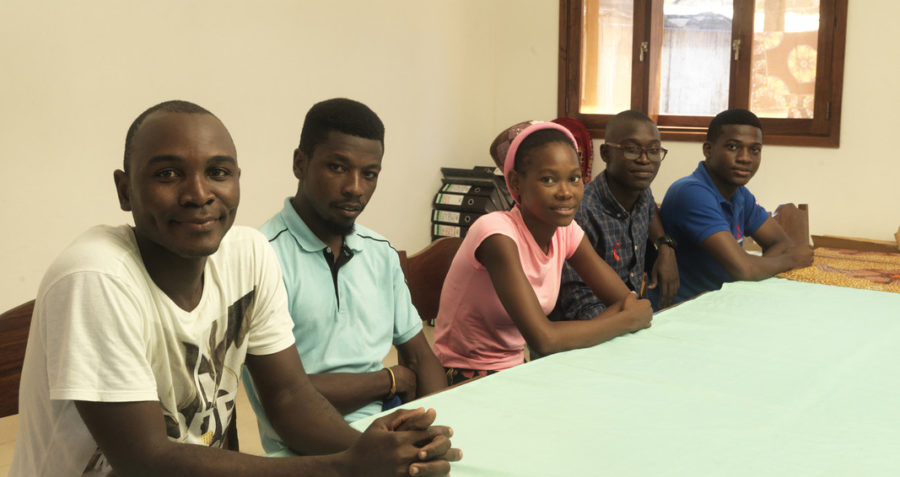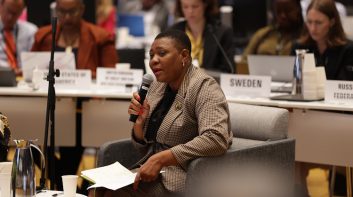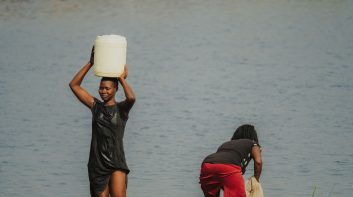Nuro’s story: I am an example, I show them they are not alone
 © Frontline AIDS/Peter Caton 2019
© Frontline AIDS/Peter Caton 2019
Nuro Amanula, a 22-year-old peer supporter from Mozambique, on why he is passionate about helping other gay men access lifesaving HIV prevention, care and treatment services.
What motivated me to be a peer supporter was the meetings I participated in before, when I was a programme participant. The meetings I had with the people here – the words, the advice – gave me the strength to come out of the closet.
My role as a peer supporter is about retention and active searches. It’s about finding people who have no connection with the health unit, or people who have abandoned treatment. First, I use myself as an example of a strong person living with HIV to show them they are not alone, that there are more people with the virus and they are healthy, that life does not stop.
The nurses at AMODEFA [the Associação Moçambicana Para o Desenvolvimento da Família, a programme partner] send a list of those who are no longer on treatment to our supervisor who provides us with this data so we can support them.
Peer support for people with HIV
The challenges are many. First, there are those people who refuse to go to the health unit. For example, someone may test and get a positive result but does not want to accept his condition. The second challenge relates to the person’s location, because there are those who give a false address, but even so we try to find the person.
People receive information through lectures, awareness raising and group conversations, which we hold at Wimbe beach in Pemba city. Holding the conversation circles in public places can be challenging if someone has difficulty in being open with us, but we do not have a safe space to talk to them. For LAMBDA [the Mozambican Association for Sexual Minorities, a programme partner] what comes next is to address issues such as this so we can reach more people from the LGBT community [lesbian, gay, bisexual and transgender] and provide health services in a sustainable way.
I am very grateful for this project. The lectures I received as a programme participant gave me access to the right information and I was able to carry on with my treatment in a safe and continuous way. For this I am very satisfied and grateful.
About our programme
Nuro was a peer-navigator for the Deep Engagement Mozambique programme, which ran between 2017 and 2019 and enabled around 20,000 lesbian, gay, bisexual and transgender people to access tailored HIV and STI prevention and treatment services.
Further Reading
Tags
Deep Engagement MozambiqueLGBTMozambique





